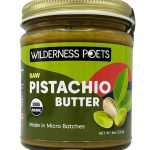Is a potato a vegetable? The potato is a ubiquitous ingredient found in kitchens around the world, known for its versatility and nutritional value. However, there’s a common question that often crops up: is a potato a vegetable? This article delves into the classification of the potato and its role in our diets and gardens. It aims to provide a clear answer to this question in two sections, each with three subsections.
Understanding Botanical Classifications
In the realm of botany, the term ‘vegetable’ is not strictly defined but generally refers to the edible parts of plants that are not fruits. Fruits develop from the flower of a plant and contain seeds, while vegetables consist of the other plant parts such as leaves, stems, roots, and tubers. Potatoes fall into the vegetable category as they are the tubers of the Solanum tuberosum plant. A tuber is a swollen underground stem or root, which functions as a storage organ for the plant. Potatoes store nutrients such as starch, which the plant uses for growth and reproduction. The fact that potatoes store these nutrients in the ground, where they are below the surface and away from light, distinguishes them from seed-bearing fruits. When harvested, these tubers provide humans with a nutrient-dense food source, leading to their widespread cultivation and consumption.

The Potato’s Place in the Plant Kingdom
Is a potato a vegetable? The potato is part of the Solanaceae family, which includes several species commonly accepted as vegetables. This family is known as the nightshade family, hosting a variety of foods and flowering plants. Potatoes grow underground connected to the subterranean stems of the plant, and unlike fruits, they do not stem from the pollinated flowers of the plant. The growth process is a key factor in their classification. Since potatoes grow as tubers intended for the storage of starch and energy for the plant, they are commonly harvested for their fleshy consistency that is high in nutrients. Their botanical relatives include tomatoes and eggplants, which are also consumed as vegetables despite the former being technically classified as a fruit due to its seeds. This botanical kinship adds to the evidence of the potato’s rightful place in the vegetable category of the plant kingdom.
Distinction Between Fruits and Vegetables
The confusion between fruits and vegetables typically lies in the difference between botanical and culinary definitions. Botanically, fruits develop from the ovary of a flowering plant, usually containing the seeds. Vegetables, on the other hand, comprise all other edible parts of a plant. Culinary classifications, however, are based on taste and usage in cooking. For example, tomatoes are botanically fruits but are used as vegetables in a culinary context. Potatoes, devoid of seeds and not resulting from the flowering part of the plant, are botanically and culinarily classified as vegetables. Their role in cooking is unlike that of sweet or tart fruits and typically aligns with other starchy, seedless vegetables. The role that potatoes play in human consumption – primarily as a source of carbohydrates and a dietary staple rather than a sweet or tart flavoring – aligns with the general understanding and categorization of vegetables within both botanical and culinary contexts.
Potatoes in Culinary Traditions
Potatoes have long been a staple ingredient in culinary traditions worldwide, thanks to their versatility and ability to be cooked in countless ways. Whether boiled, baked, fried, mashed, or roasted, potatoes hold a significant place in many traditional dishes and are beloved for their comfort and satiety. They serve as a foundation for hearty meals, acting as the perfect accompaniment to proteins, vegetables, and various flavors and spices. From French fries and mashed potatoes to potato salads and gratins, the possibilities are endless when it comes to incorporating this culinary favorite into a wide range of cuisines.
Nutritional Value of Potatoes
Contrary to popular belief, potatoes are actually packed with valuable nutrients, making them a healthy addition to most diets. They are an excellent source of vitamin C, providing over 20% of the recommended daily intake per serving. Vitamin C is an essential antioxidant that aids in immune function, collagen production, and iron absorption. Potatoes are also rich in potassium, a mineral that plays a crucial role in maintaining proper heart and muscle function, as well as regulating blood pressure. Additionally, potatoes are a significant source of dietary fiber, especially when consumed with the skin on. Fiber supports digestive health, helps maintain a healthy weight, and promotes feelings of fullness and satisfaction after meals. Furthermore, potatoes contain a variety of other vitamins and minerals such as vitamin B6, manganese, and folate, contributing to a well-rounded and nutritious vegetable.
Misconceptions and Dietary Considerations
Is a potato a vegetable? There have been misconceptions surrounding the healthiness of potatoes, largely stemming from their carbohydrate content or common preparation methods such as frying. While it is true that potatoes are high in carbohydrates, they are also a good source of complex carbohydrates. They are essential for providing a steady and sustained release of energy. It’s important to note that the total impact of carbohydrates on health and weight management is influenced by portion sizes, preparation methods, and other ingredients. They are used in conjunction with potatoes. Boiling or baking potatoes, for example, can help retain their nutritional value while minimizing added fats or oils.
It’s also crucial to consider the overall balance of one’s diet and the variety of foods consumed. Potatoes can be part of a balanced and nutritious diet when prepared healthily and enjoyed in moderation. Frying potatoes or adding high-calorie toppings may diminish their health benefits. There are numerous ways to incorporate potatoes into a nutrient-rich meal. For instance, combining them with lean proteins, vegetables, and healthy fats can create a well-rounded and satisfying dish.
The Culinary Debate in 2024: Versatile and Delicious
In the culinary world, potatoes are widely regarded as a vegetable. They’re incredibly versatile, used in countless dishes from comforting mashed potatoes to hearty stews and vibrant salads. In fact, potatoes are a staple food in many cultures around the world, and their culinary applications are virtually limitless.
More Than a Side Dish
Potatoes are often relegated to the role of a side dish. They can also be the star of the show. Consider dishes like potato pancakes, shepherd’s pie, or loaded baked potatoes – these all showcase the potato’s versatility and deliciousness.
The Nutritional Argument: More Than Just Starch
While potatoes are indeed starchy, they offer a wealth of nutritional benefits. They’re a good source of:
- Potassium: Essential for heart health and blood pressure regulation.
- Vitamin C: A powerful antioxidant that supports immune function and skin health.
- Fiber: Promotes digestive health and can help regulate blood sugar levels.
- B Vitamins: Important for energy production and nervous system function.
- Iron: Necessary for carrying oxygen throughout the body.
The Debate: Are Potatoes a Vegetable or a Starch?
Despite their botanical classification as vegetables, some argue that potatoes should be considered a starch due to their high carbohydrate content. This debate has implications for dietary guidelines and food labeling.
-
Starch Classification: Some nutritionists categorize potatoes as a starch because they are a major source of carbohydrates. This classification places them alongside grains like rice and pasta.
-
Vegetable Classification: Others maintain that potatoes are vegetables based on their botanical nature and nutritional profile. They argue that potatoes offer valuable nutrients beyond carbohydrates.
-
Implications for Dietary Guidelines: The classification of potatoes can influence dietary recommendations, particularly regarding the recommended daily intake of vegetables.
Potatoes and the Environment: Sustainable Farming Practices
Potato cultivation has raised environmental concerns, including soil degradation, water usage, and pesticide use. However, sustainable farming practices are emerging to address these issues:
-
Crop Rotation: Rotating potato crops with other plants helps maintain soil fertility and reduce the need for synthetic fertilizers.
-
Cover Cropping: Planting cover crops between potato harvests helps prevent soil erosion and suppress weeds, reducing the need for herbicides.
-
Water Conservation: Efficient irrigation techniques like drip irrigation can reduce water usage in potato farming.
-
Integrated Pest Management (IPM): IPM strategies combine various pest control methods, including biological controls and crop rotation, to minimize the use of chemical pesticides.
Conclusion:
Is a potato a veggie? The potato, with its rich history, diverse culinary applications, and considerable nutritional value, is, without a doubt, a vegetable. This starchy tuber is enjoyed around the world in countless forms. And its classification as a vegetable is supported by both botanical and culinary standards. Understanding the true nature of the potato allows us to appreciate its role in both our gardens and our meals. Make more informed choices about this versatile and beloved food.






